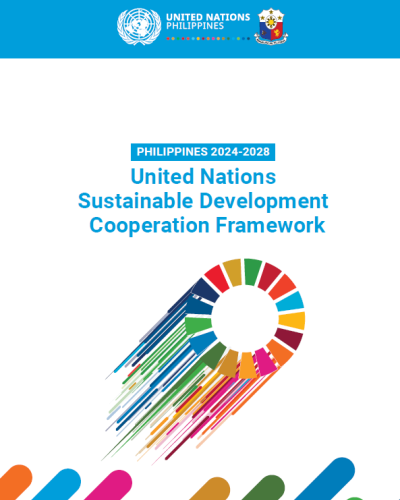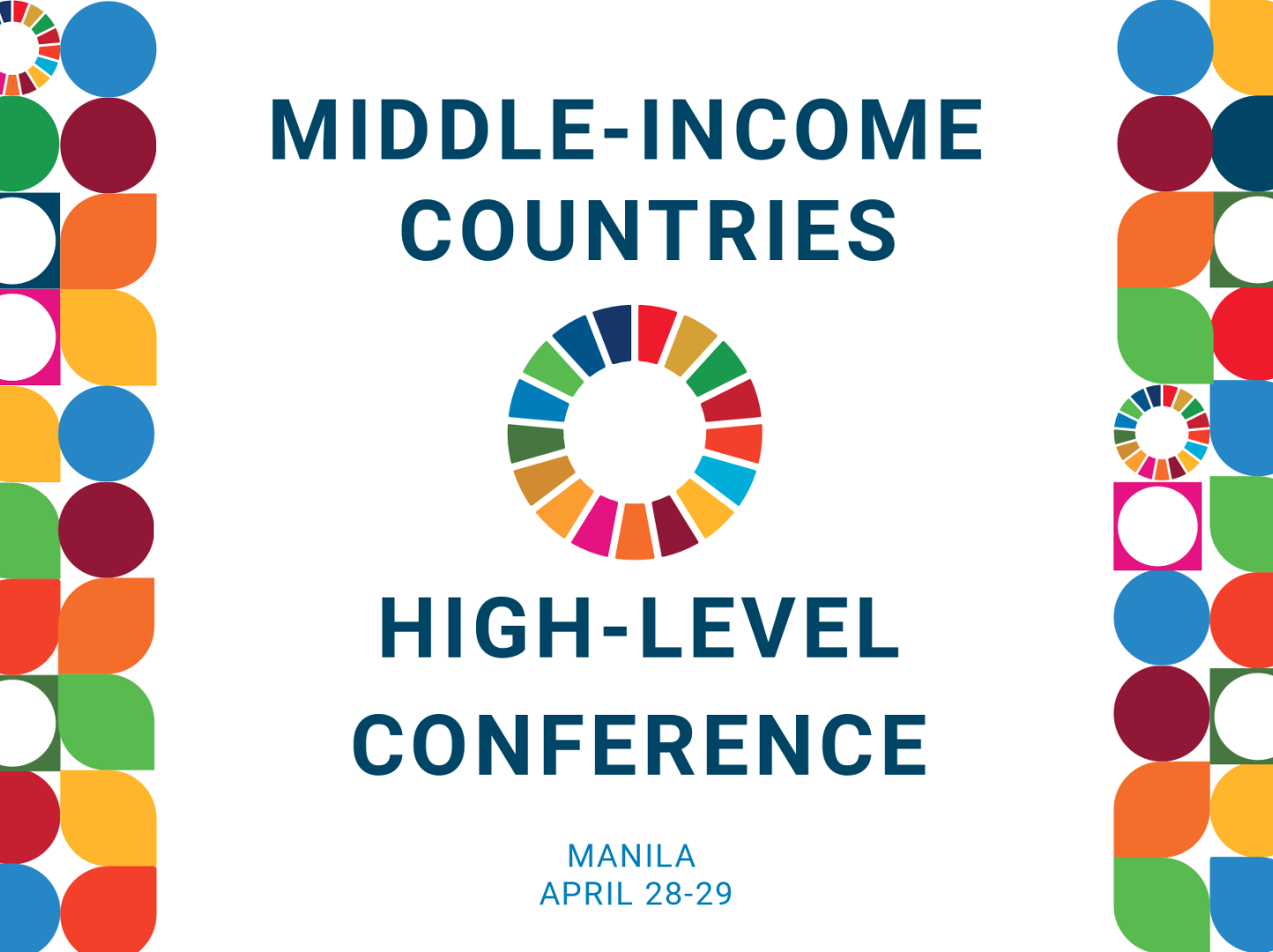Publication
Philippines 2024 -2028 United Nations Sustainable Development Cooperation Framework
25 October 2023

- This United Nations Sustainable Development Cooperation Framework (CF: 2024-2028) is the joint strategic planning framework for partnership between United Nations and the Government of the Republic of the Philippines over 2024-2028, a period that coincides with the global push for acceleration of actions to achieve the 2030 Agenda for Sustainable Development and its Sustainable Development Goals (SDGs). It is aligned with and supports the Philippines’ long-term development vision articulated in AmBisyon Natin 2040 and the Philippine Development Plan (PDP) 2023-2028.
- The CF was formulated through a consultative process involving the Government, civil society, private sector, development partners, and the United Nations system (represented by resident and non-resident entities). It is grounded in the United Nations development system’s comparative advantages, its normative agenda, and its ability to leverage a broad range of resources for development. It is informed by the national development priorities in the PDP and supports the country’s aspiration to become an upper middle-income economy and to accelerate progress towards the achievement SDGs. As a long-term trusted partner of the Government, United Nations in the Philippines is well-positioned to support the government in achieving the country’s sustainable development.
- As one of the fastest growing economies in Southeast Asia, the Philippines has been able to significantly reduce poverty and improve living conditions of its population. However, the pandemic led to economic contraction, increased poverty and unemployment, and exacerbated already high inequalities causing a major set-back to the country’s development trajectory. The country is on a good recovery path on the strength of its sound economic fundamentals notwithstanding record high inflation rates in the early part of 2023. The establishment of the Bangsamoro Autonomous Region in Muslim Mindanao (BARMM) sets the track for lasting peace, stability and stronger development in the southern parts of the country. While there has been progress in recent years, some human development indicators need improvements in parts of the country.
- The Philippines is a member of the Association of Southeast Asian Nations (ASEAN) where it plays an important role in setting the agenda and influencing regional outcomes. It is committed to the 2030 Agenda and has set up mechanisms to implement, monitor and mainstream SDGs in development plans.
- Further progress on SDGs requires continued action for rapid recovery and making the economy more competitive, innovative and resilient; making governance more transparent and accountable; supporting peace and development in regions that are economically marginalised; strengthening the rights-based approach to development and evidence-based and participatory policymaking; deepening commitment to leaving no one behind with focus on vulnerable groups; investing in human capital; and action on climate change, environmental governance and pollution. This needs to be done by building broad-based and diverse partnerships and following a more integrated and multi-dimensional approach towards sustainable development, in support of national priorities and existing public programs.
- To better support government programs to achieve Philippine development objectives and keeping in mind the centrality of leaving no one behind, the Government of the Philippines and United Nations identified, in consultation with other stakeholders, the following strategic priorities and outcomes for CF (2024-2028):
| Strategic priorities | Outcomes |
| Human capital development, inclusion, and resilience building | Outcome 1: By 2028, all people, especially those at risk of being left behind, have increased resilience to economic, climatic, disaster, and public health risk through improved, equitable, and gender-responsive access to and utilization of quality social services, social protection, healthy habitat, enhanced good governance and peace. |
| Sustainable economic development, decent work, and innovation | Outcome 2: By 2028, all people, benefit from a more integrated, innovative, inclusive, and sustainable economy that generates decent work and livelihood opportunities. |
| Climate action, environmental sustainability and disaster-resilience | Outcome 3: By 2028, all people benefit from just transition to low-carbon, climate-resilient development, sustainable management of environment, natural resources and biodiversity and strengthened resilience to disasters and natural hazards. |
- United Nations in the Philippines will contribute to the achievement of these strategic priorities and outcomes through technical assistance, capacity building, policy advice, leveraging partnerships, promoting systems thinking, catalysing development finance, among others. United Nations will build on its normative mandate and contribute to accelerating SDG progress through evidence-informed approaches in line with the guiding principles namely, human rights-based approach to development, “leaving no one behind”, gender equality and women’s empowerment, sustainability, accountability, and resilience. United Nations will support the Philippines’ engagement with relevant regional institutions and development frameworks.
- The Joint Steering Committee (JSC) is the embodiment of joint ownership of the CF by the Government and the United Nations. It is the highest governing body that provides oversight and support, reviewing and guiding the strategic guidance of the CF. It is co-chaired by the Secretary of the National Economic and Development Authority (NEDA) and the Secretary of the Department of Foreign Affairs (DFA) from the government side and the United Nations Resident Coordinator (UN-RC). The JSC will review the progress against the planned results, including with a mid-term review, identify new opportunities and recommend course corrections as necessary.
-
The legal annex at the end of this document defines the relationship between the United Nations and the Government of Philippines. The CF will be operationalized through Joint Work Plans and monitored through the Monitoring, Evaluation and Learning Plan. Under the overall guidance of the United Nations country team (UNCT), the CF will be further supported by Outcome Groups and other thematic and programme support groups. There will be a mid-term review to be coordinated under the JSC framework and a mandatory final independent evaluation of the CF that will be presented to the JSC in the penultimate year of its implementation.
CLICK HERE TO DOWNLOAD FULL REPORT
CLICK HERE TO DOWNLOAD TEXT ONLY
Published by
FAO
IFAD
ILO
IOM
ITC
OCHA
OHCHR
UN Women
UN-Habitat
UN
UNAIDS
UNDP
UNDSS
UNEP
UNESCO
UNFPA
UNHCR
UNIC
UNICEF
UNICRI
UNIDO
UNOCT
UNODC
UNOPS
WFP
WHO
Related Resources
Resources
14 October 2025




















